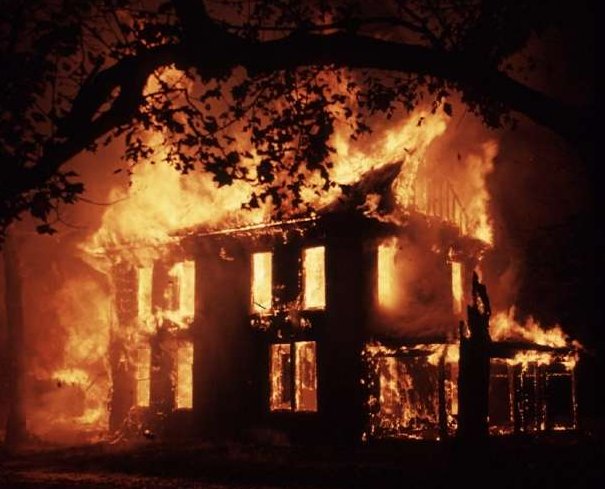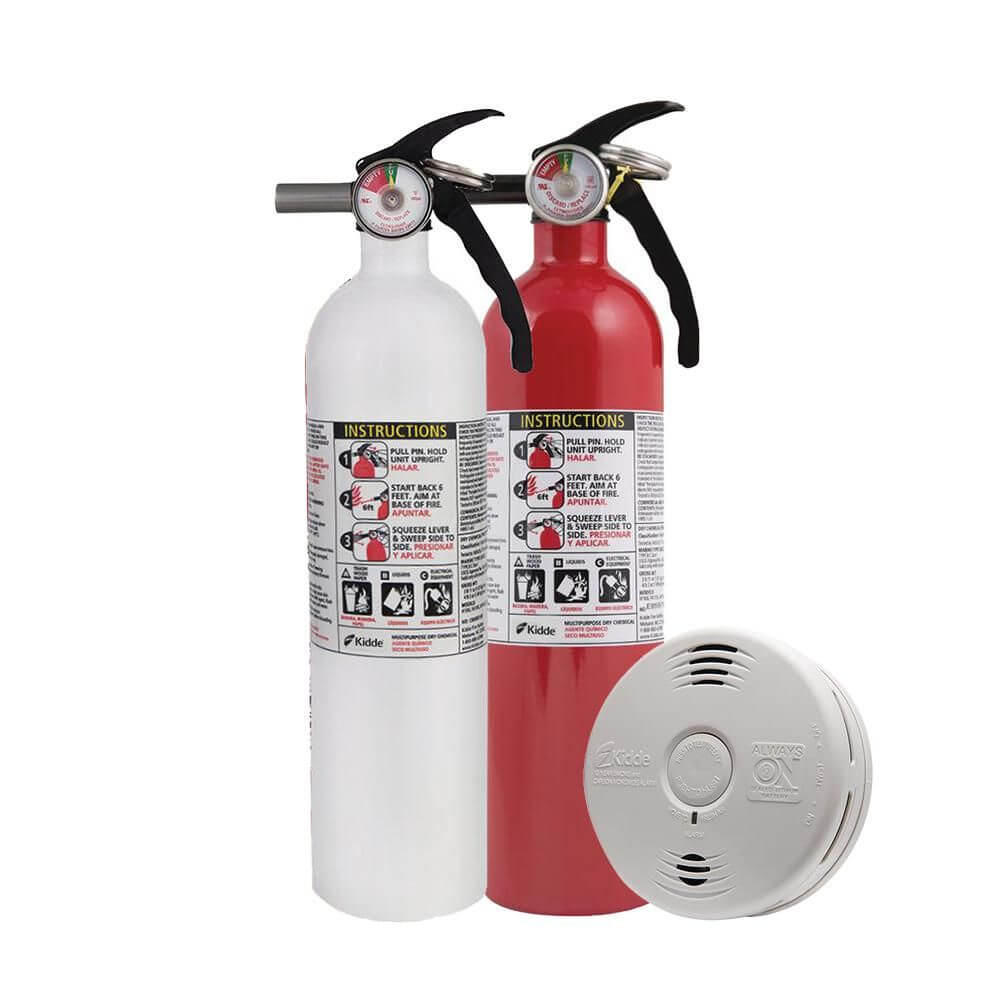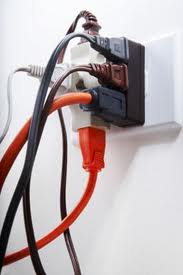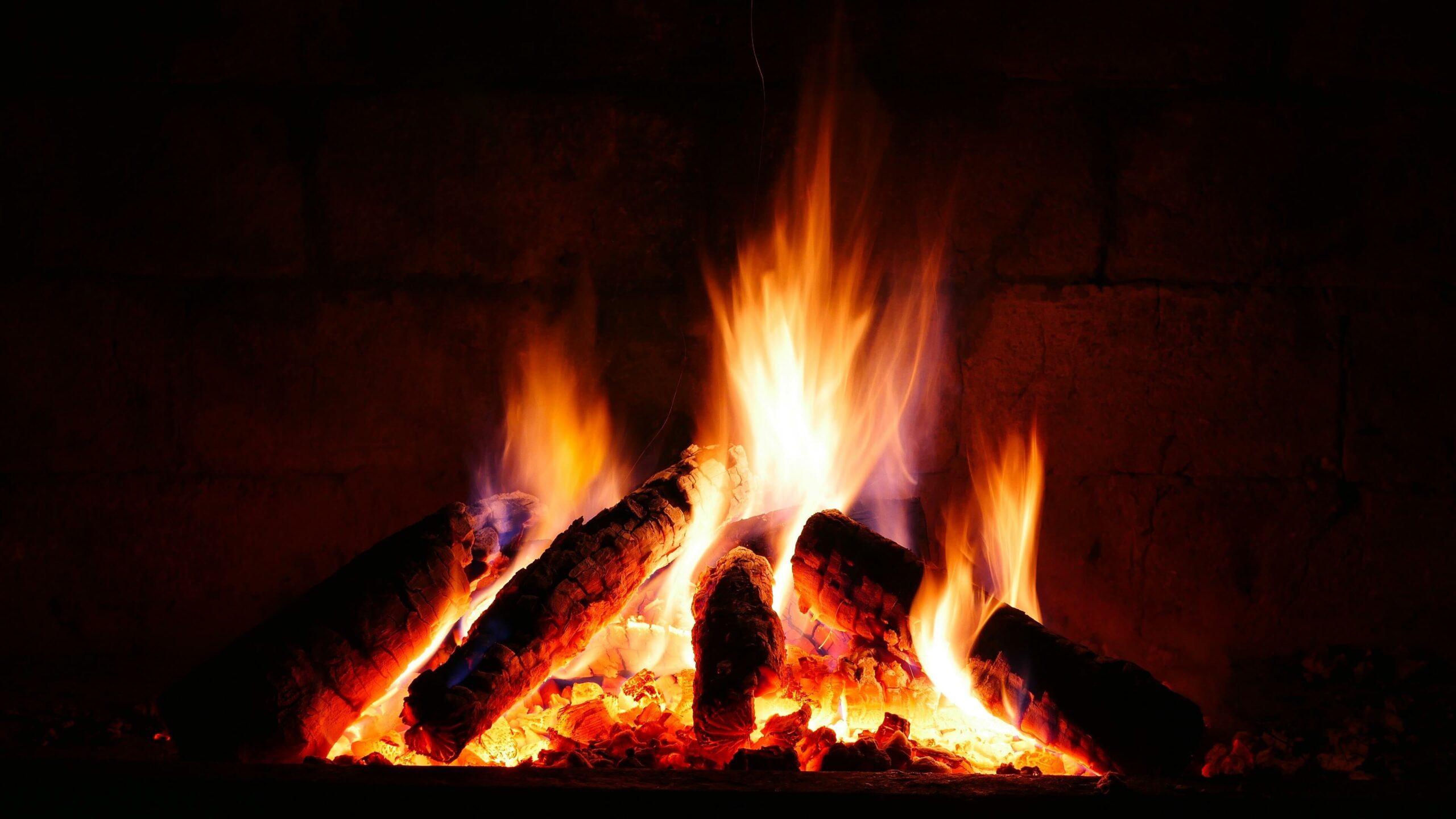
Smoke Detectors
Smoke is responsible for three out of four fire-related deaths.
Install smoke detectors on every level of your home, outside of sleeping areas, and in bedrooms.
Test every smoke detector once a month. Replace the batteries once a year or more often if the detector makes a chirping sound.
If you buy a new one, make sure it is approved by U.L. and the State Fire Marshal.

Fire Extinguishers
Your fire extinguisher should be a minimum of 4A10BC (see specifications on nameplate) and U.L. or State Fire Marshal approved.
Your extinguisher should be serviced once a year by a licensed fire extinguisher service company.
Learn how to use your fire extinguisher before an emergency. When it is time to get it serviced, take it out and practice with it. Let your family get the feel of using one.
Dial 911 and then fight the fire.
Fire extinguishers should be located in the kitchen, garage, or workshop areas. Extinguishers should be located near exits. Always leave yourself an escape route.
Small kitchen fires in pans on the stove can be extinguished by putting the lids on. NEVER pour water on a grease fire.
Exit Plan
Sleep with your bedroom doors closed. In case of a fire, it holds the smoke and heat back. Check the door with the back of your hand and if it is hot, do not open it, find another exit.
Remember smoke and heat rises, stay low, and crawl if you have to.
Easy-to-use window escape ladders are available for two-story homes.
Each family should have an escape plan. Run fire drills with your young children; make sure your children know how to open doors and windows. In efforts to make homes burglar-proof, they are sometimes turned into death traps.
Establish a meeting place for your family. Several years ago a father died in a fire near me after reentering the home because he was unable to locate his daughter. He died in the fire while his daughter was already outside on the other side of the house.
Furnaces/Space Heaters
Install and maintain heating equipment properly.
Don’t store flammable materials, newspapers, rags, cleaning supplies, or flammable liquids near a furnace, water heater, space heater, or other sources of open flame.
Don’t leave space heaters on when you are not in the room. All space heaters should be in good condition. Make sure the cords are not frayed or damaged. Space heaters should be U.L. approved.
Don’t use extension cords with space heaters.
Never use a kitchen range as a substitute for a heater.
Electrical Hazards
Always be sure your electric blanket is turned off when you get up in the morning.
Try and avoid the use of extension cords. If you must use one, get a good heavy-duty cord that is U.L. approved, and make sure it is in good condition.
Never overload a plug. The use of “octopus” outlets and outlet extensions that accommodate several plugs is strongly discouraged.

If a circuit breaker blows, it is a good thing. It has done its job and warned you of an overloaded circuit. Reduce the load on the circuit and if it continues, call a qualified electrician. If you have screw-type fuses, never put a penny behind them and never try and tape circuit breakers in the on position.
In many older homes, the capacity of the electrical system does not meet the requirements of today’s modern appliances. Signs that your system may be overloaded include dimming lights when appliances are turned on, shrinking TV pictures, slow heating appliances, or fuses or circuit breakers blowing frequently. This condition could result in a fire.
Gasoline and Flammable Liquids
Flammable liquids should be stored in state-approved containers.
Flammable liquids should not be stored in the house or attached garage and never near heat sources.
Never use gasoline or flammable liquids to clean floors or for any general cleaning.
Do not use gasoline to start trash fires.
Children
Keep lighters and matches away from children.
Never leave children alone with fire.
If children stay with you overnight occasionally, make sure they know how to escape from your home and are part of your exit plan.
Wildland Fires
Create a defensible space around your home. Remember that radiant heat can ignite a fire from 100 feet away.
Keep your roof and gutters clean of debris.
Keep all combustibles away from any structures.
Candles, Lanterns, and Fireplaces

Keep any open flames at least 3 feet from any combustibles such as curtains or drapes.
If burning more than one candle, make sure they are at least 3 inches apart.
Don’t leave burning candles unattended.
Never move a lit candle. You should wait until the wax has hardened again to prevent any spilled wax and potential burns.
Clean your lanterns after use. If you notice any signs of rust or broken parts, make sure to replace your lantern.
Have a glass or metal screen in front of a fireplace to prevent sparks and embers from escaping.
Make sure your fire is completely out before leaving it, there should be no embers or smoke.
Put the ashes from your fire in a metal container with a lid, outside, at least 3 feet from your house.
Keep your chimney clean and have it professionally done at least once a year.
Important Rule
The most important thing to remember when there is a fire: Get out, stay out, and call for help.
Howard
No comments:
Post a Comment